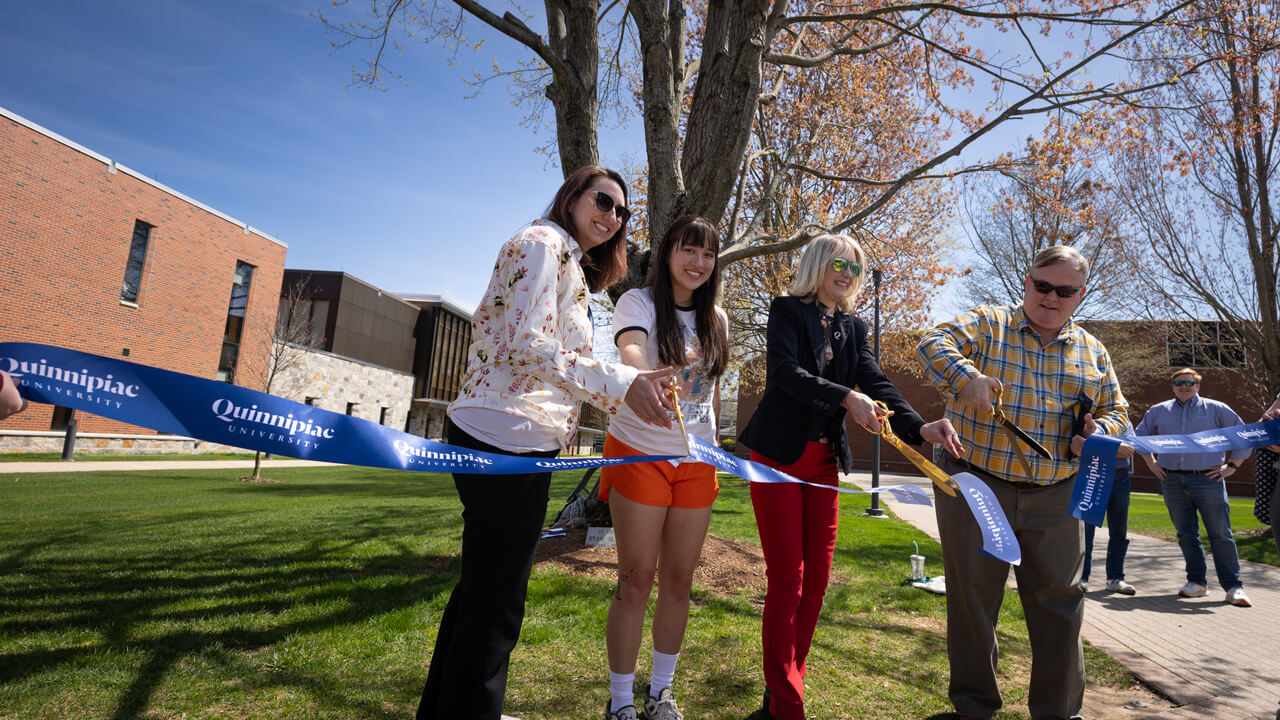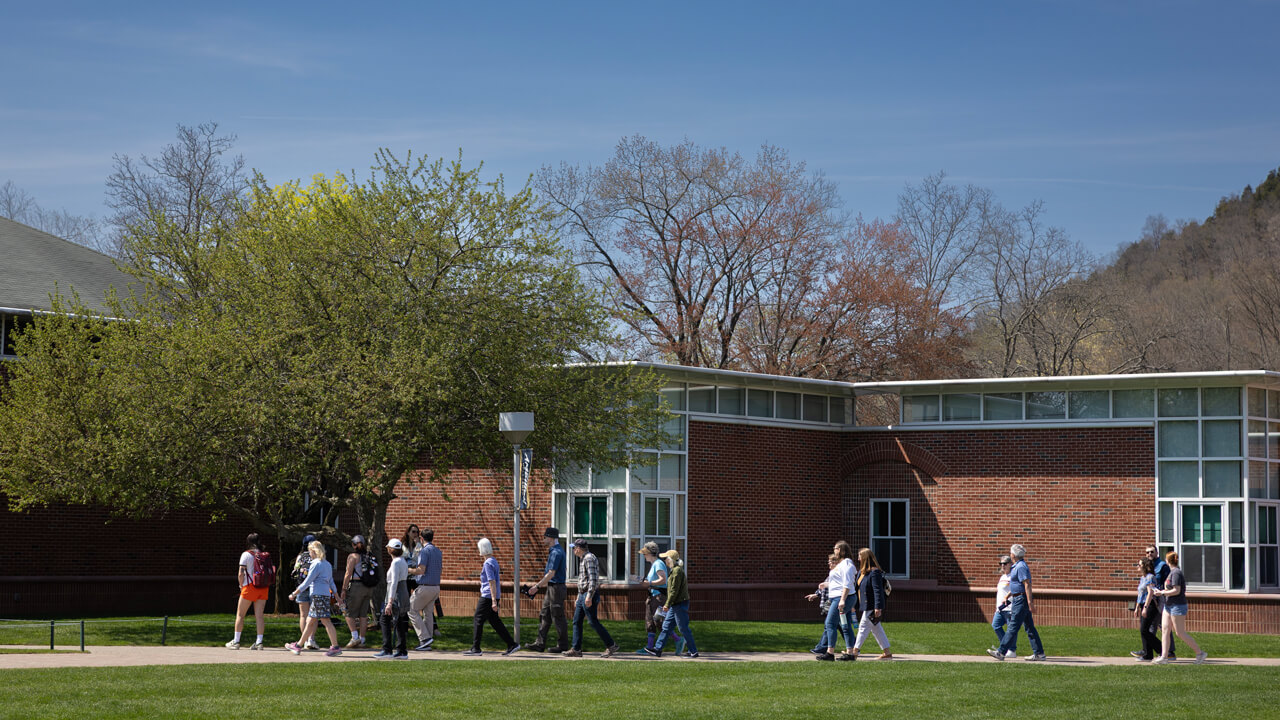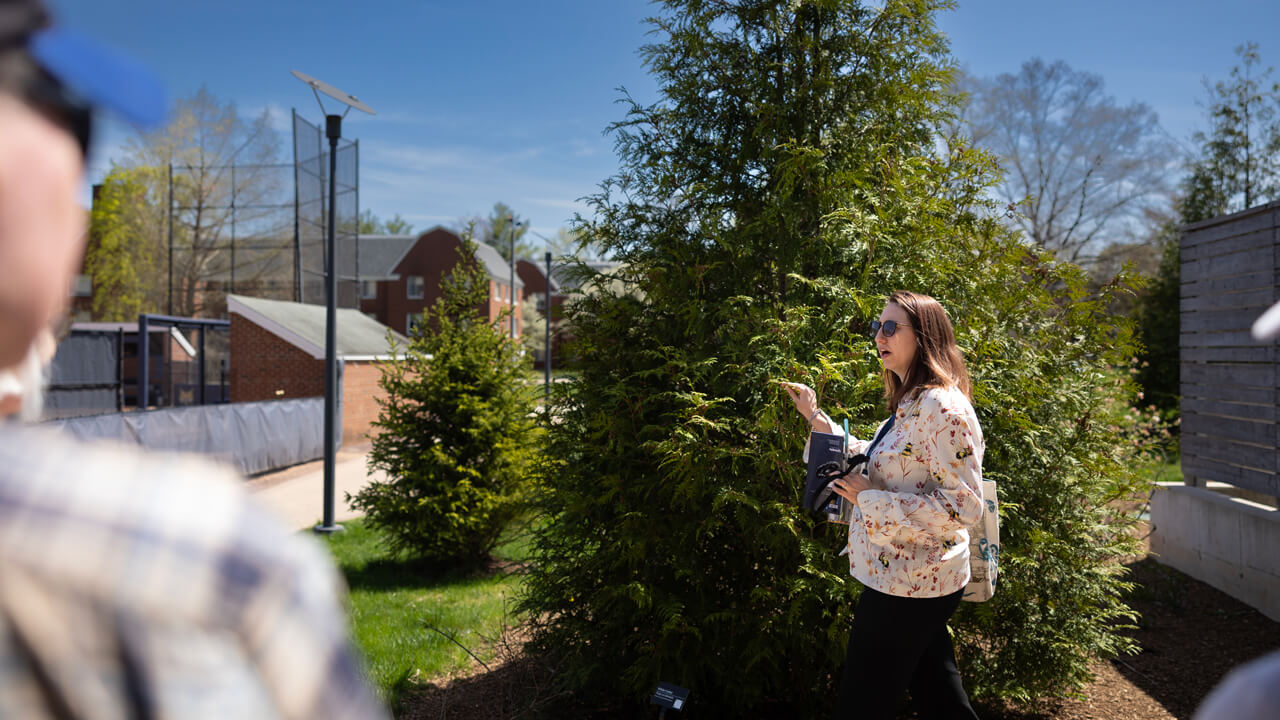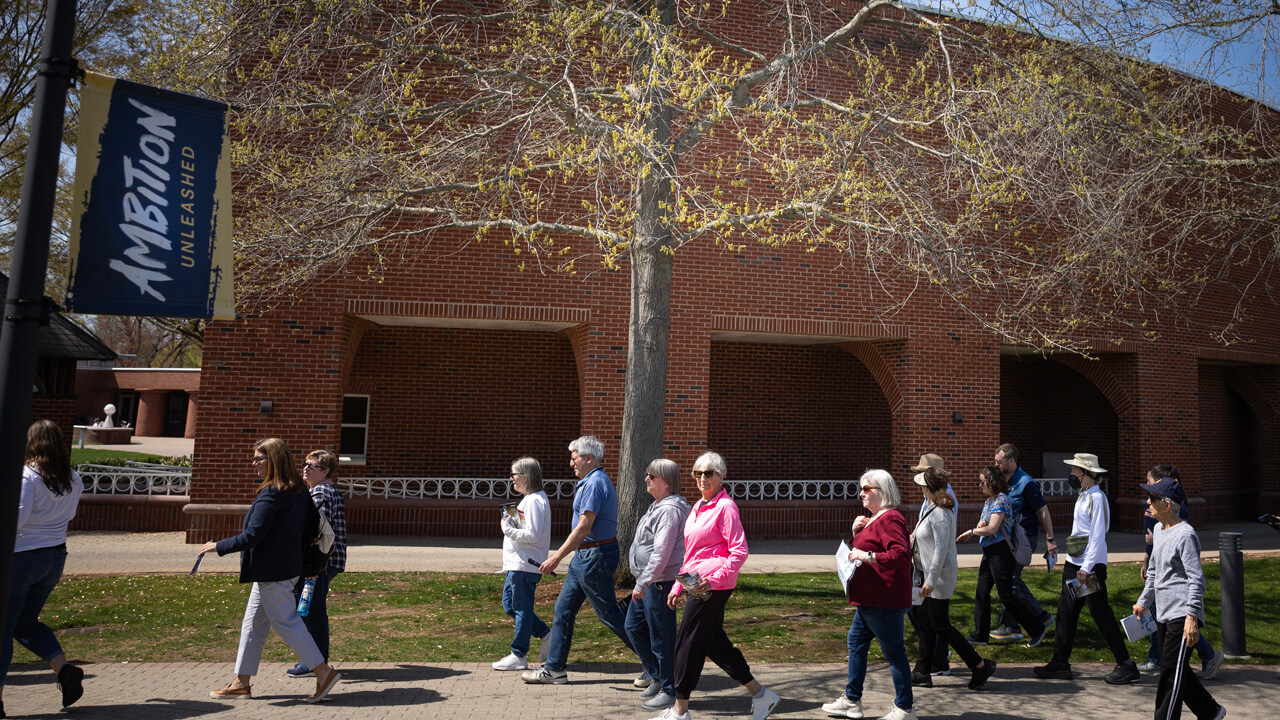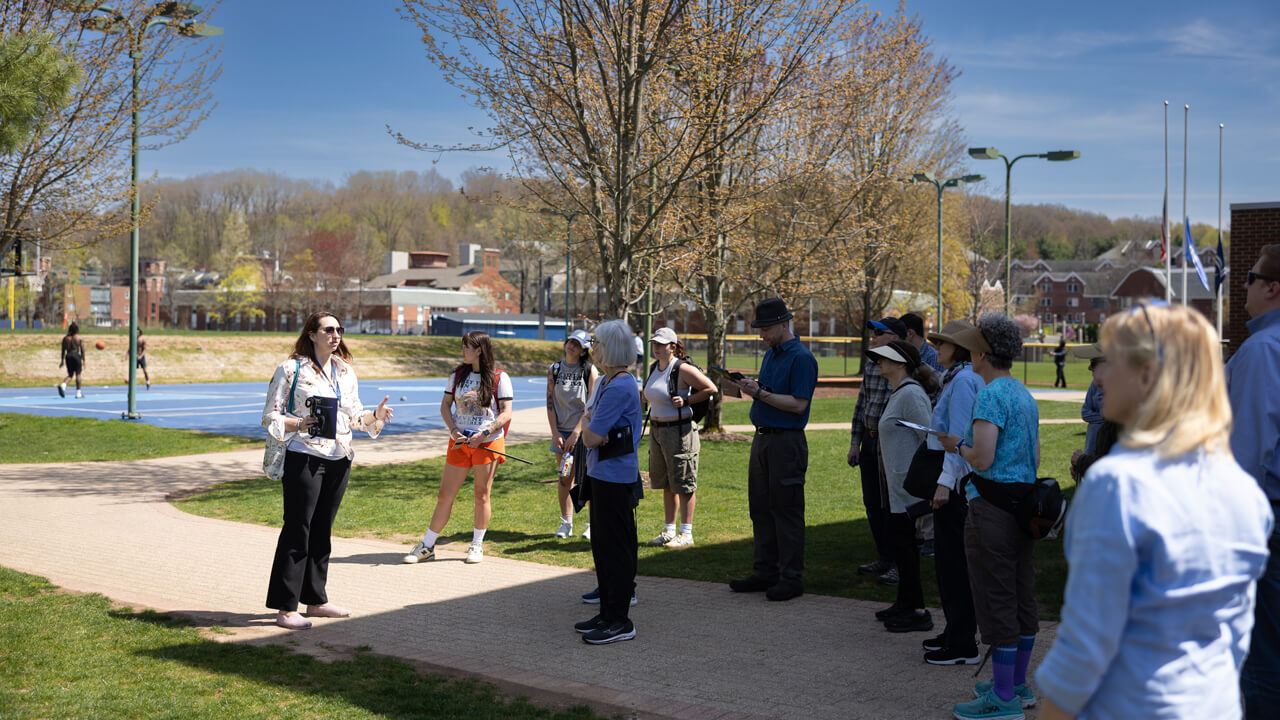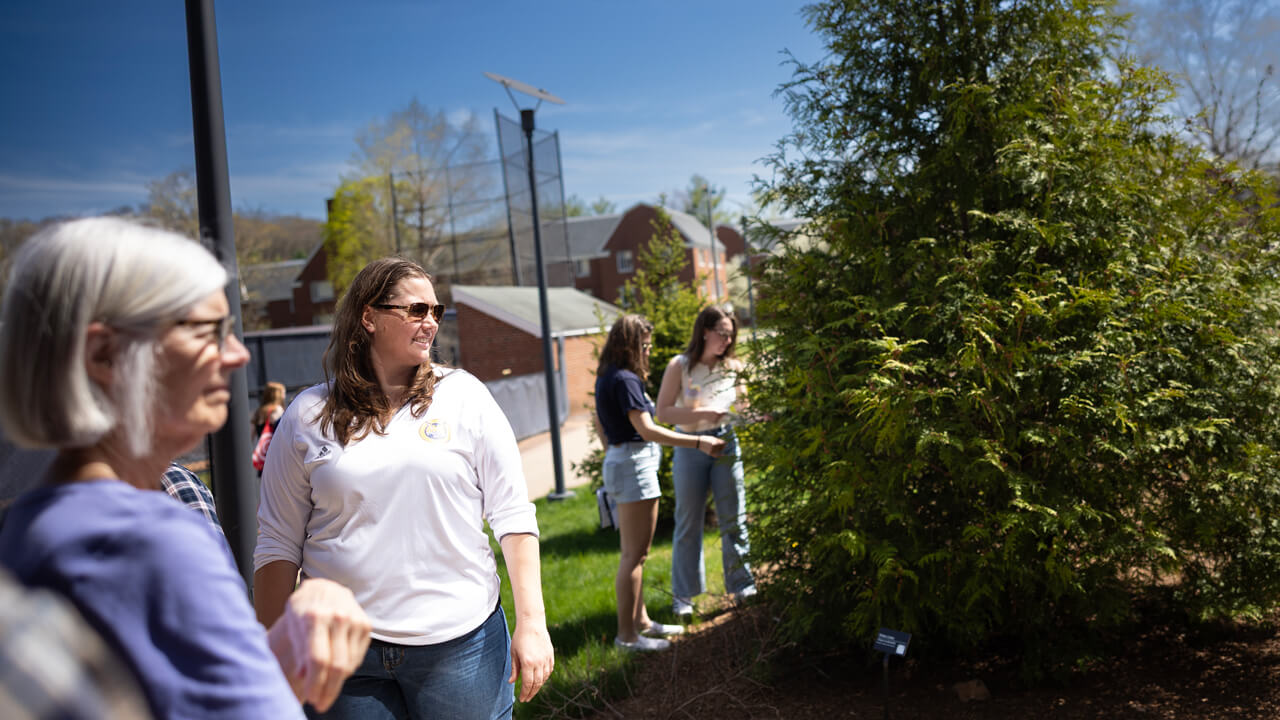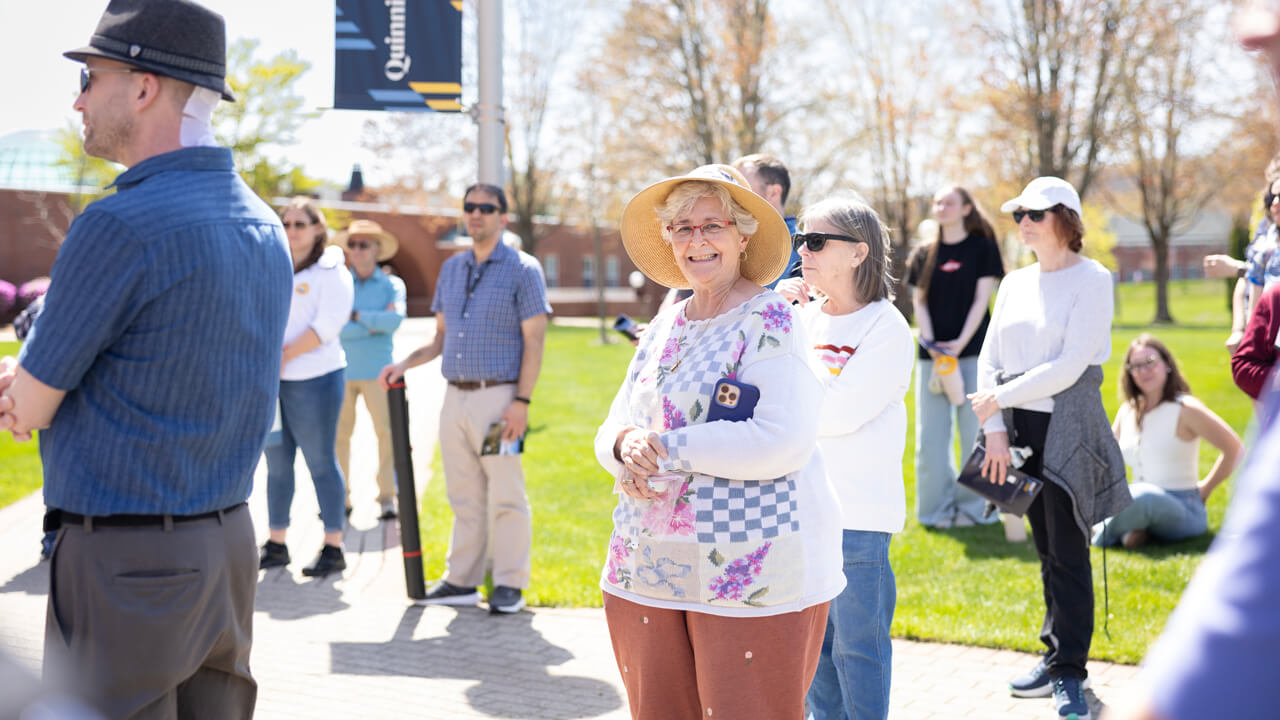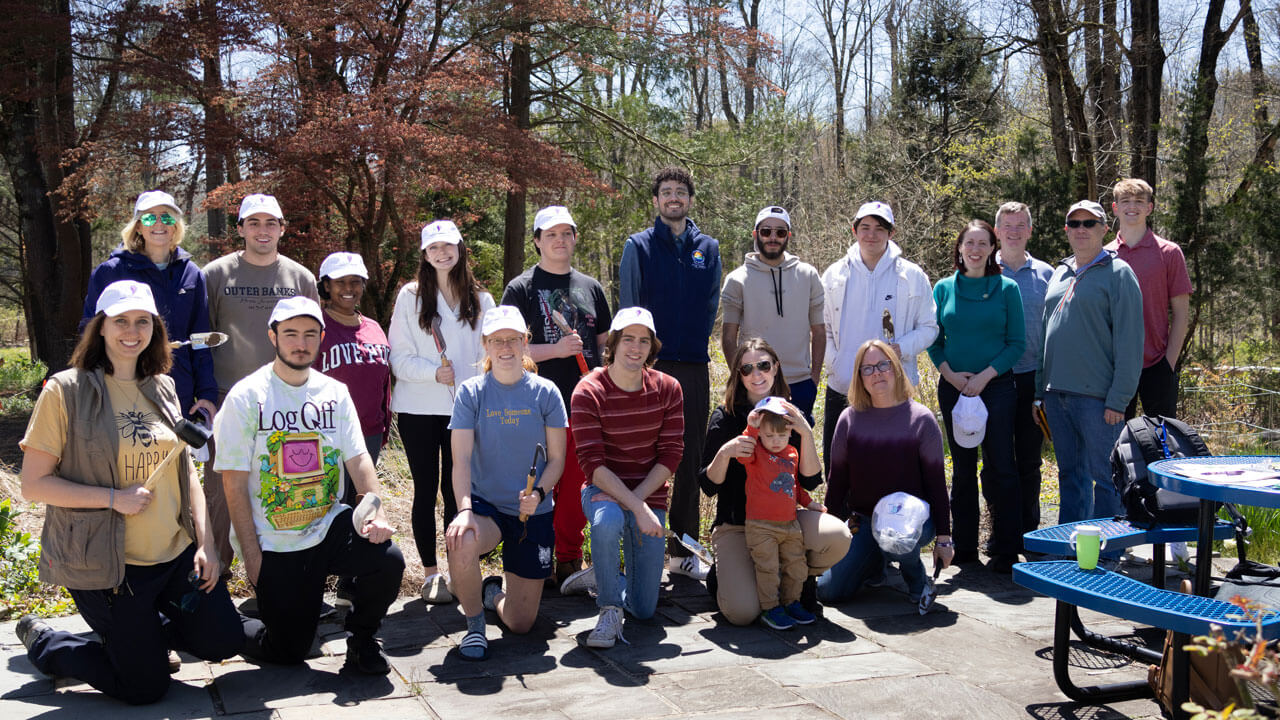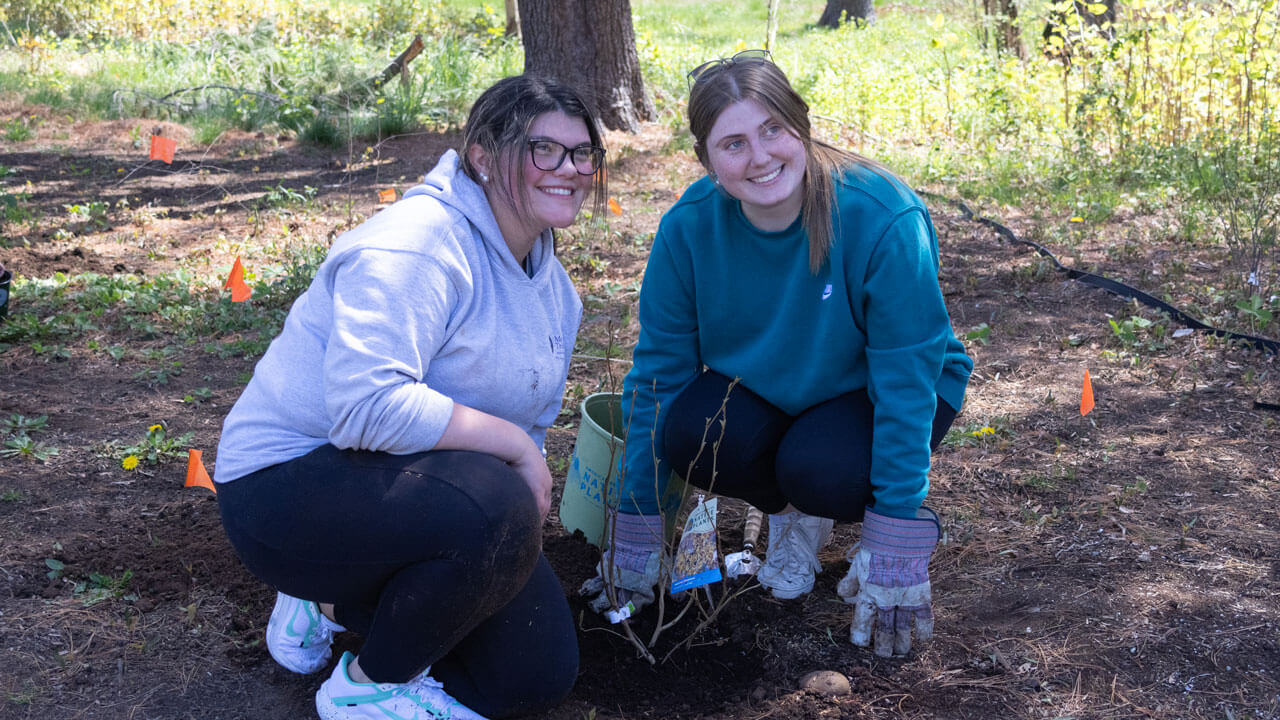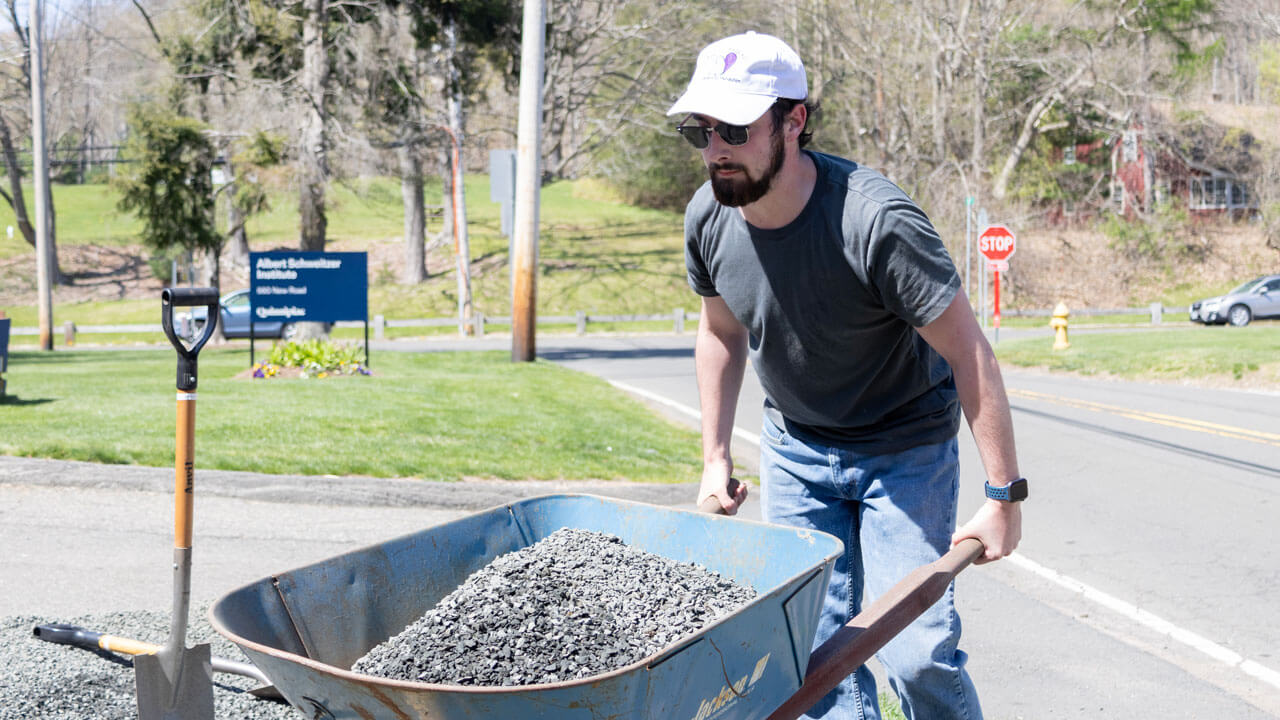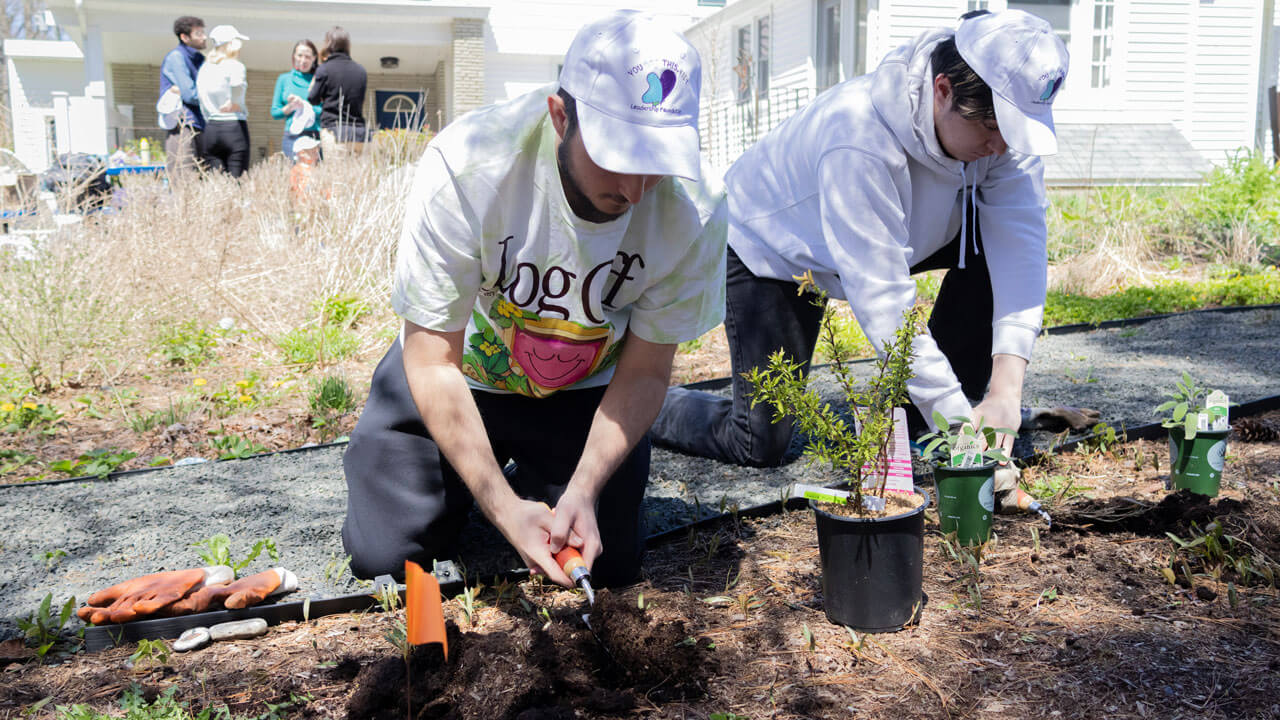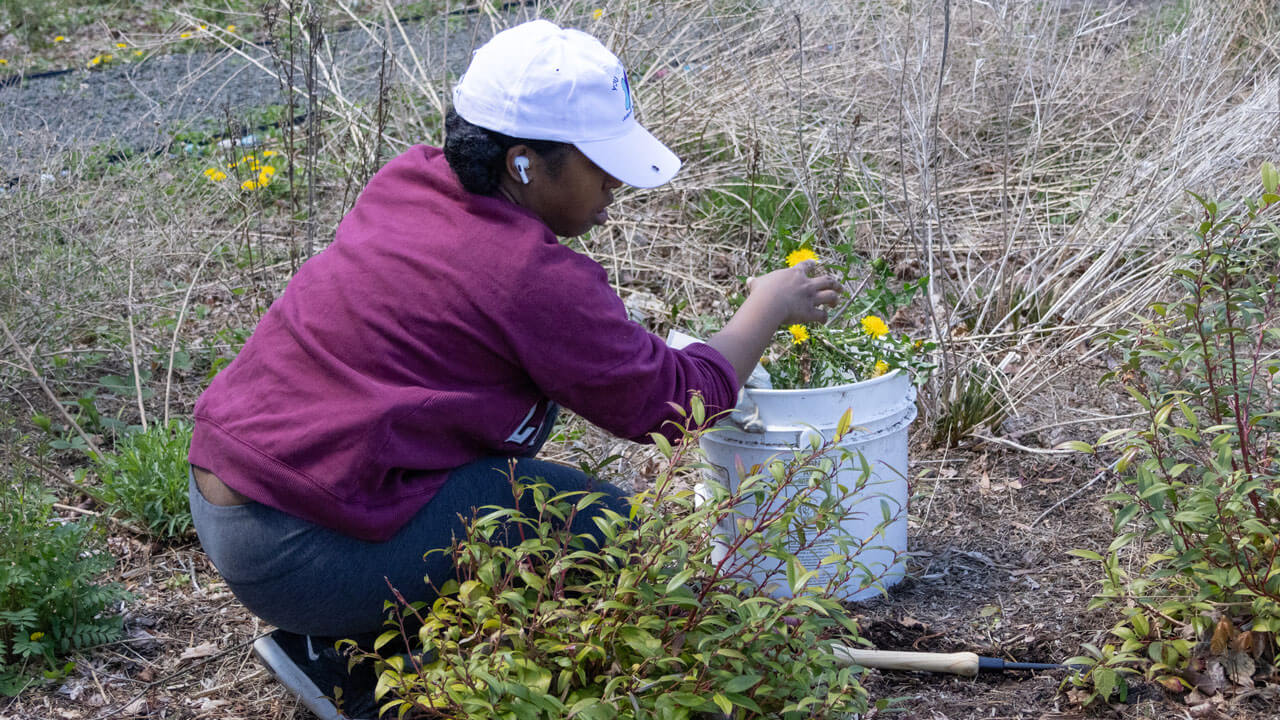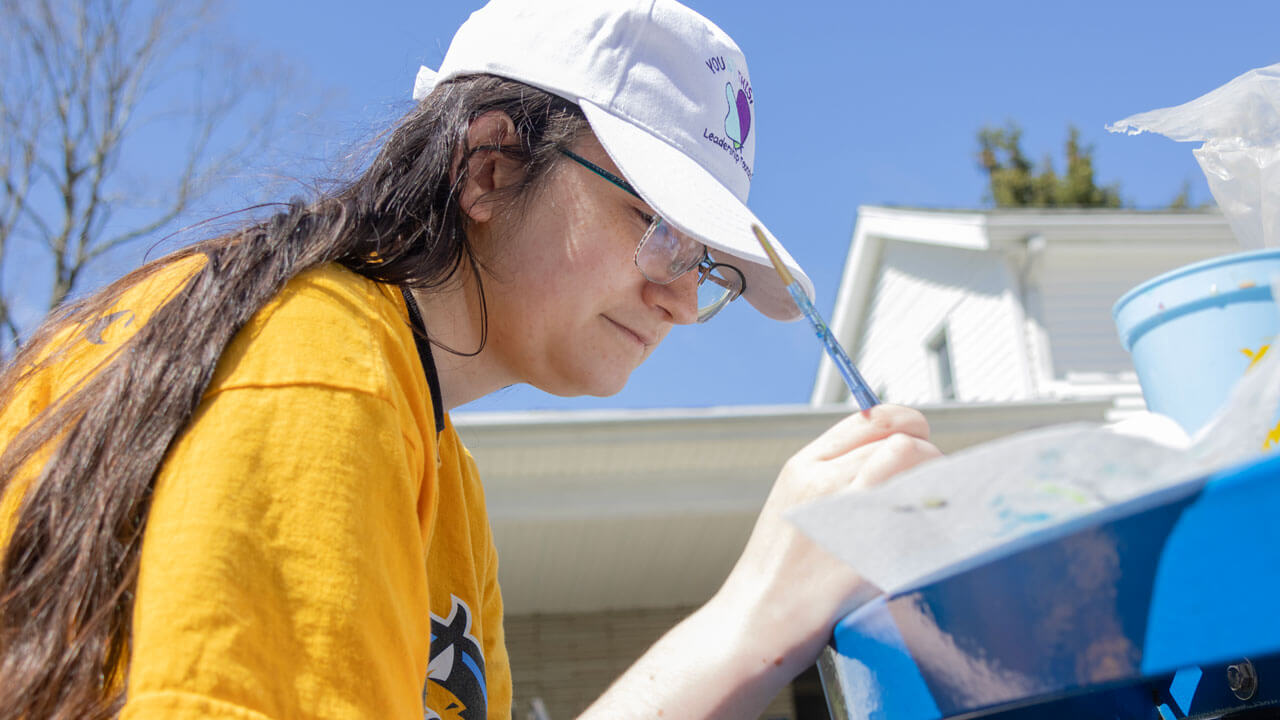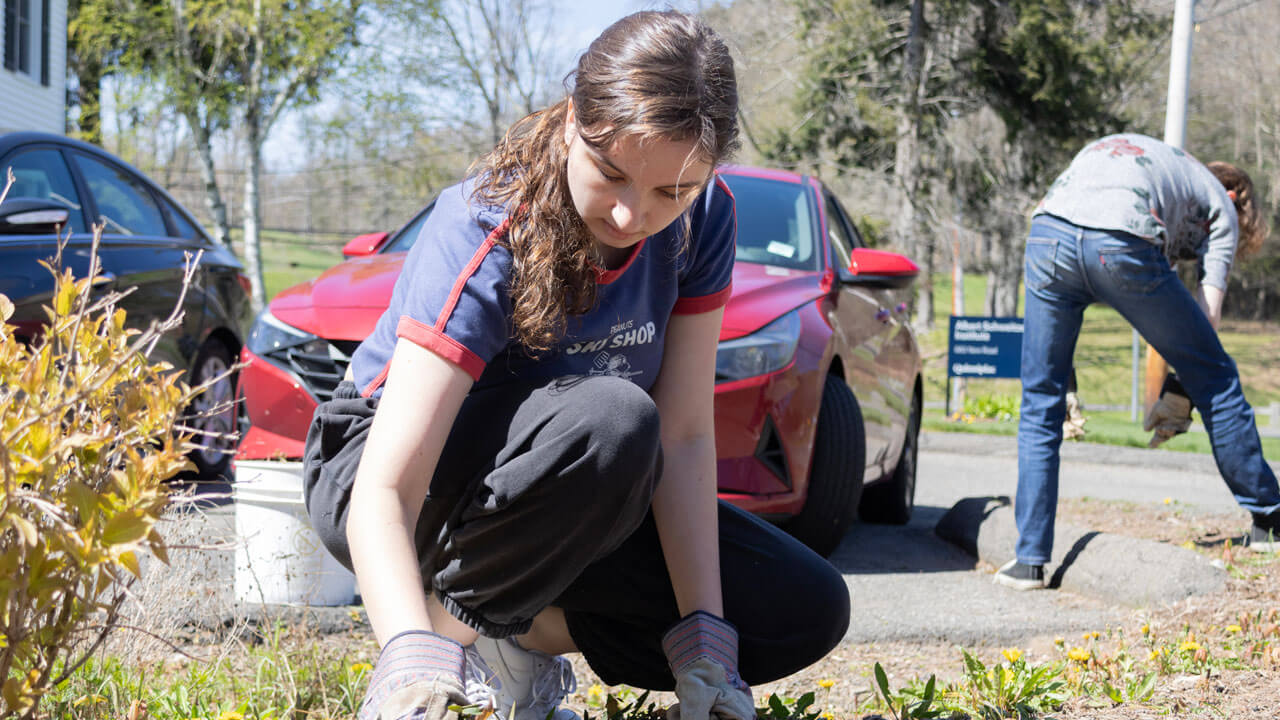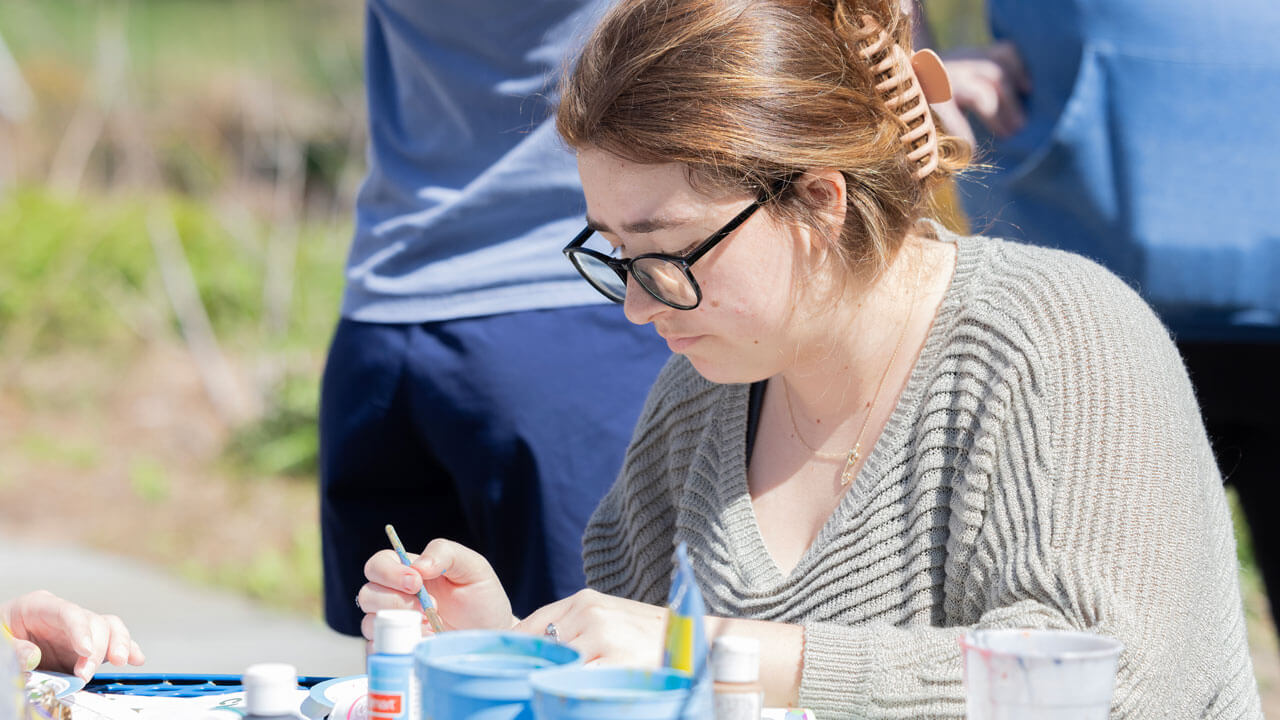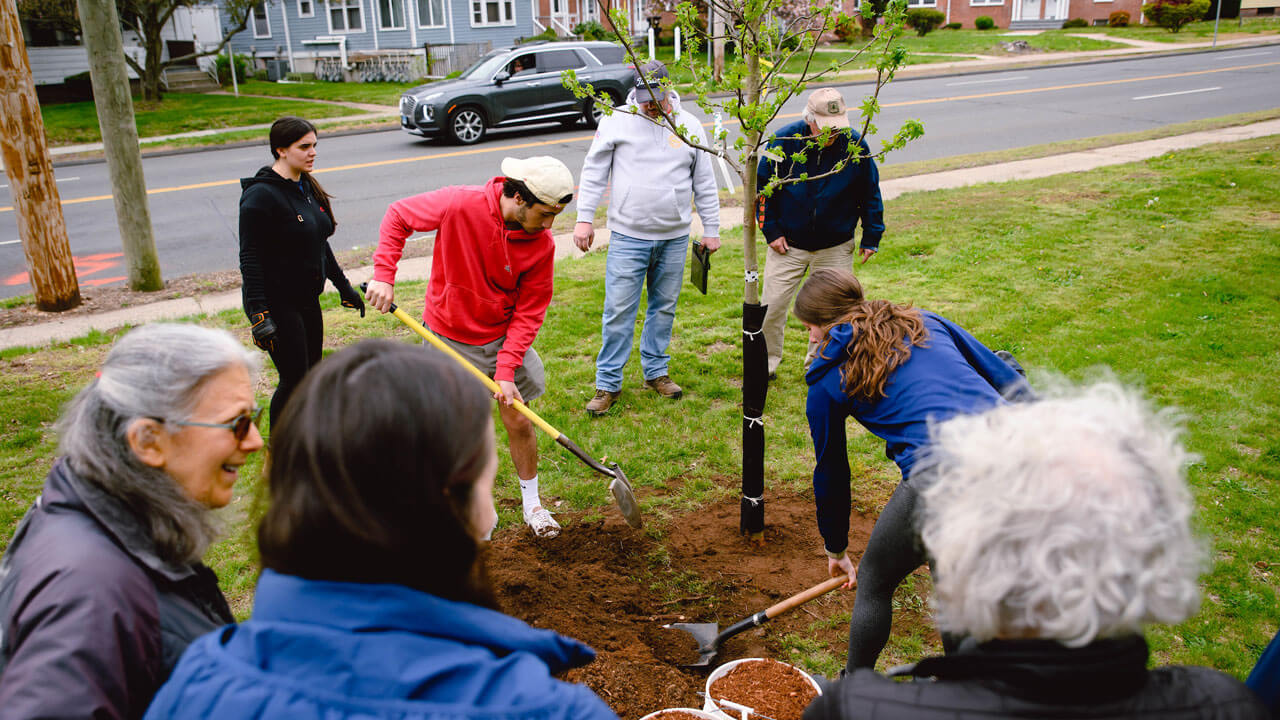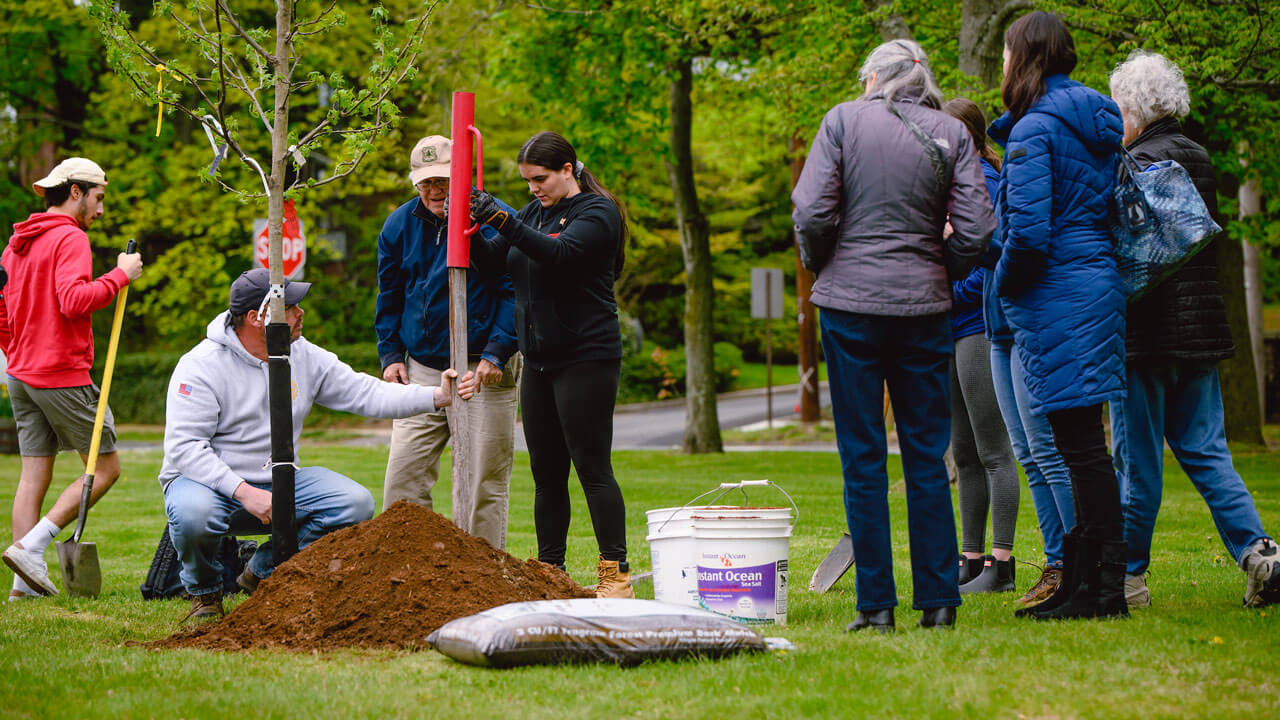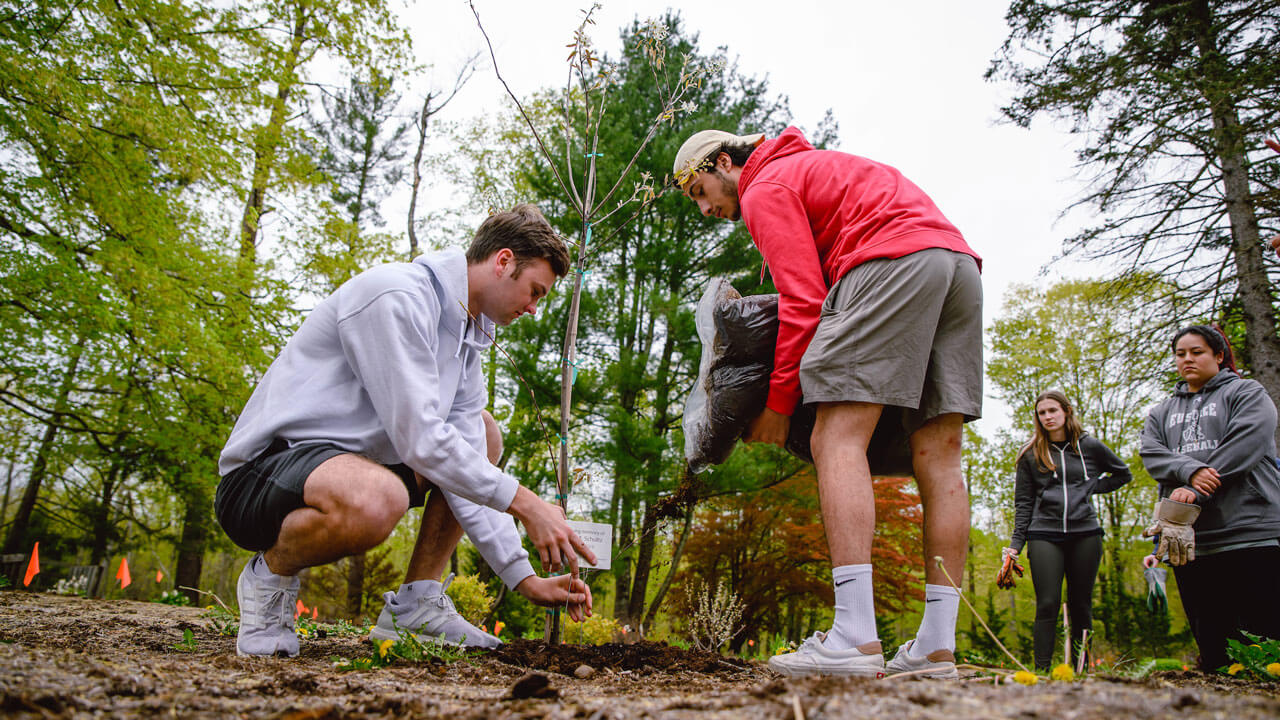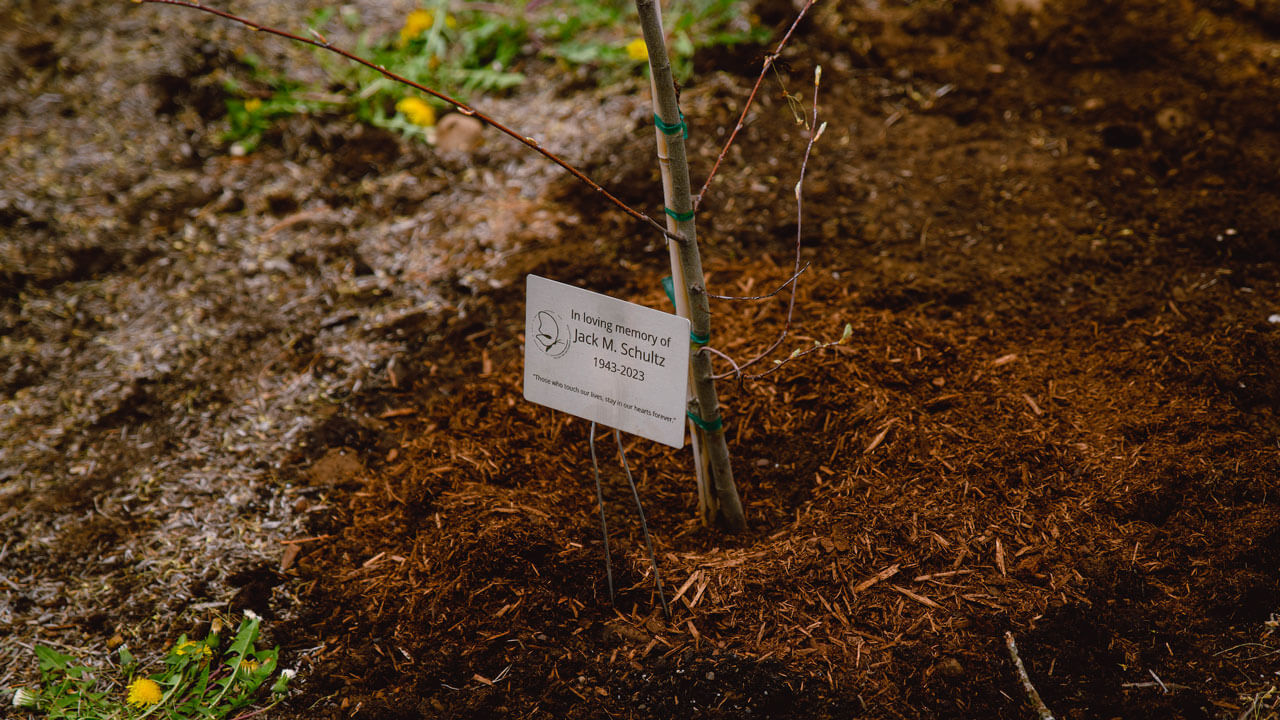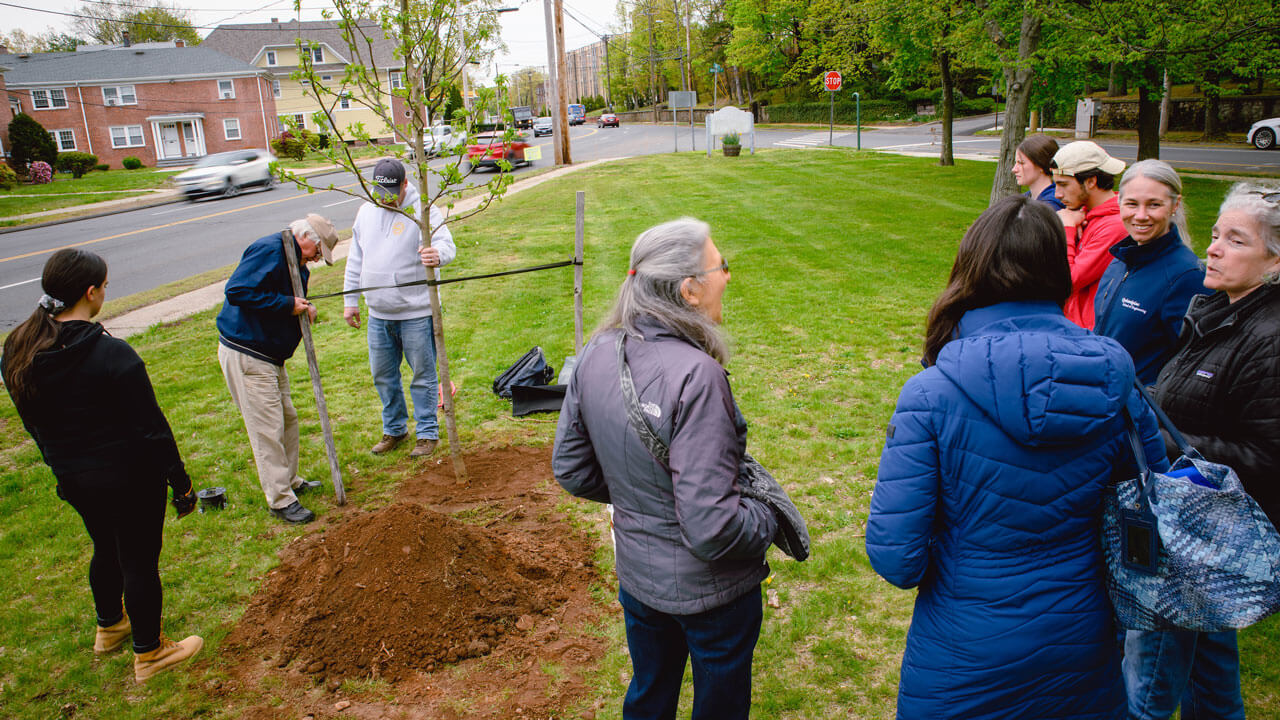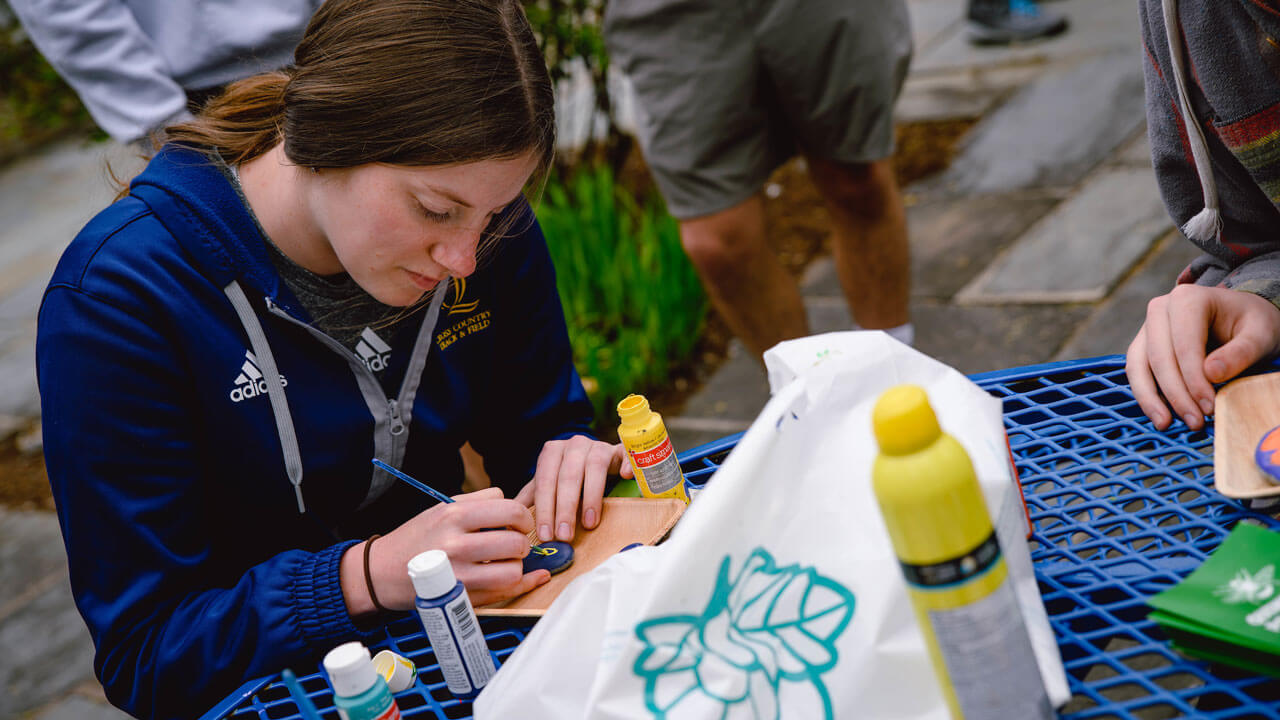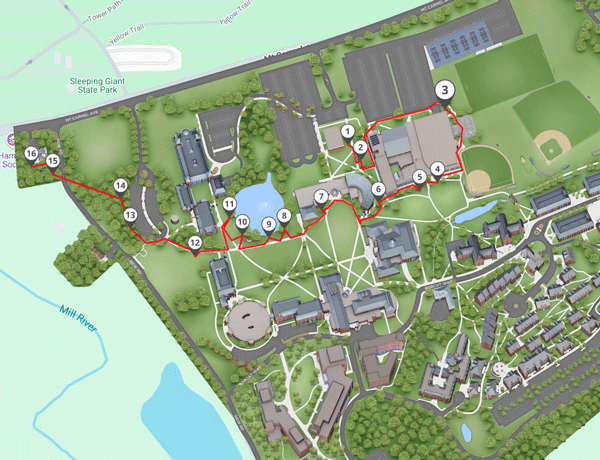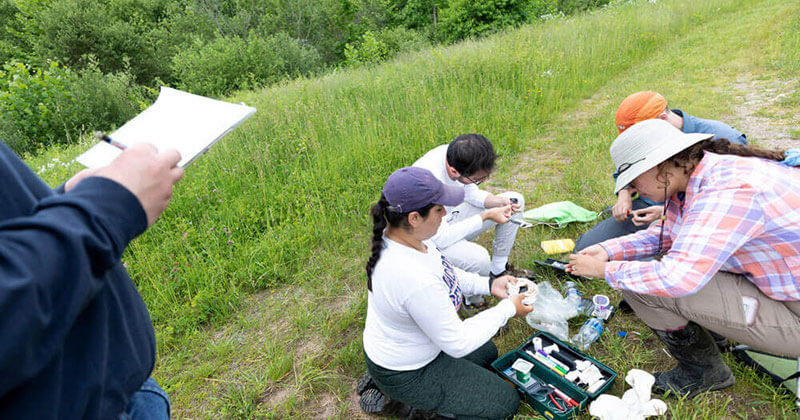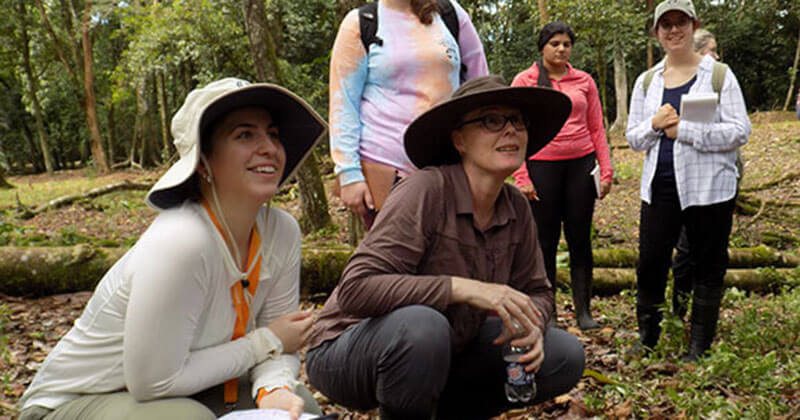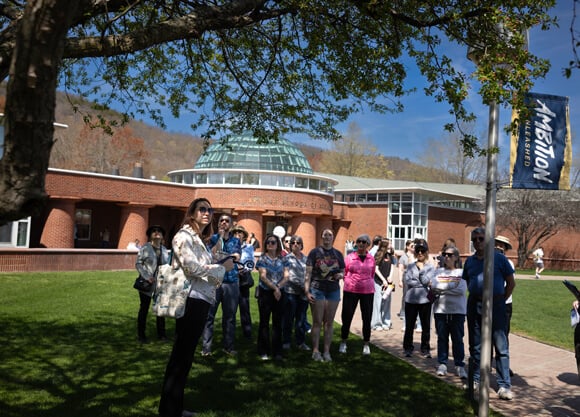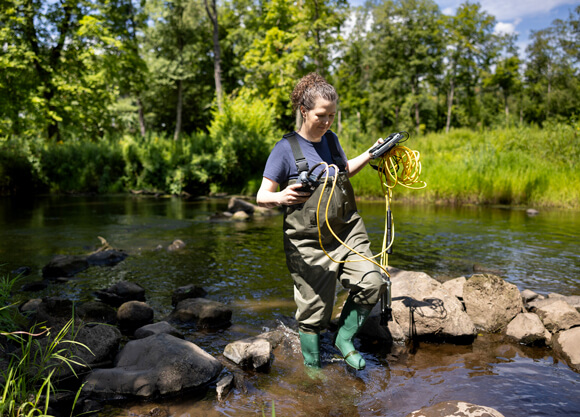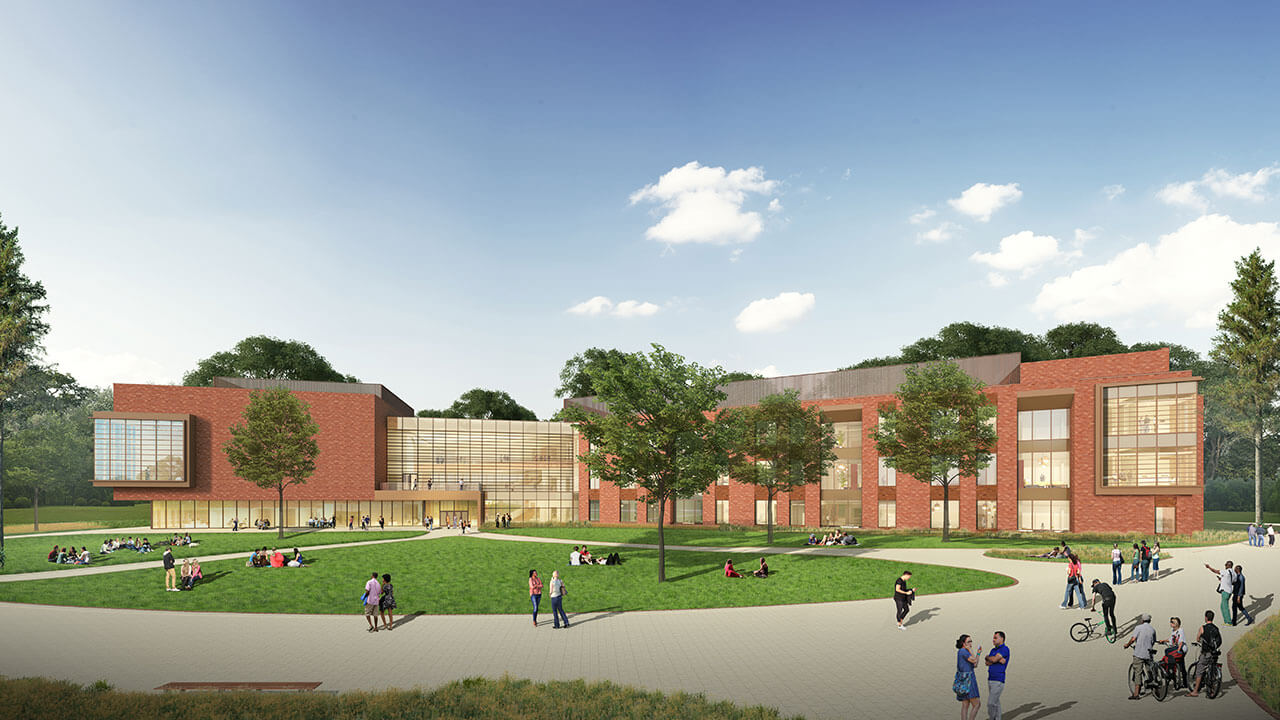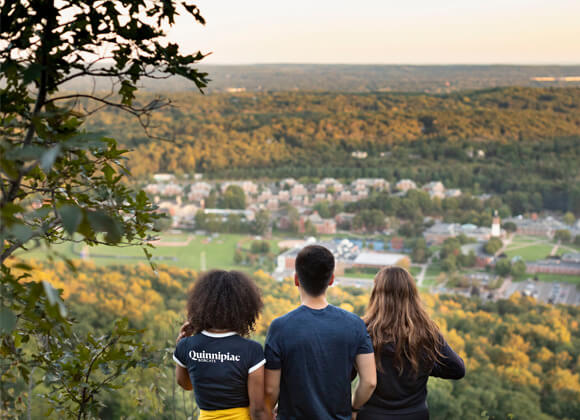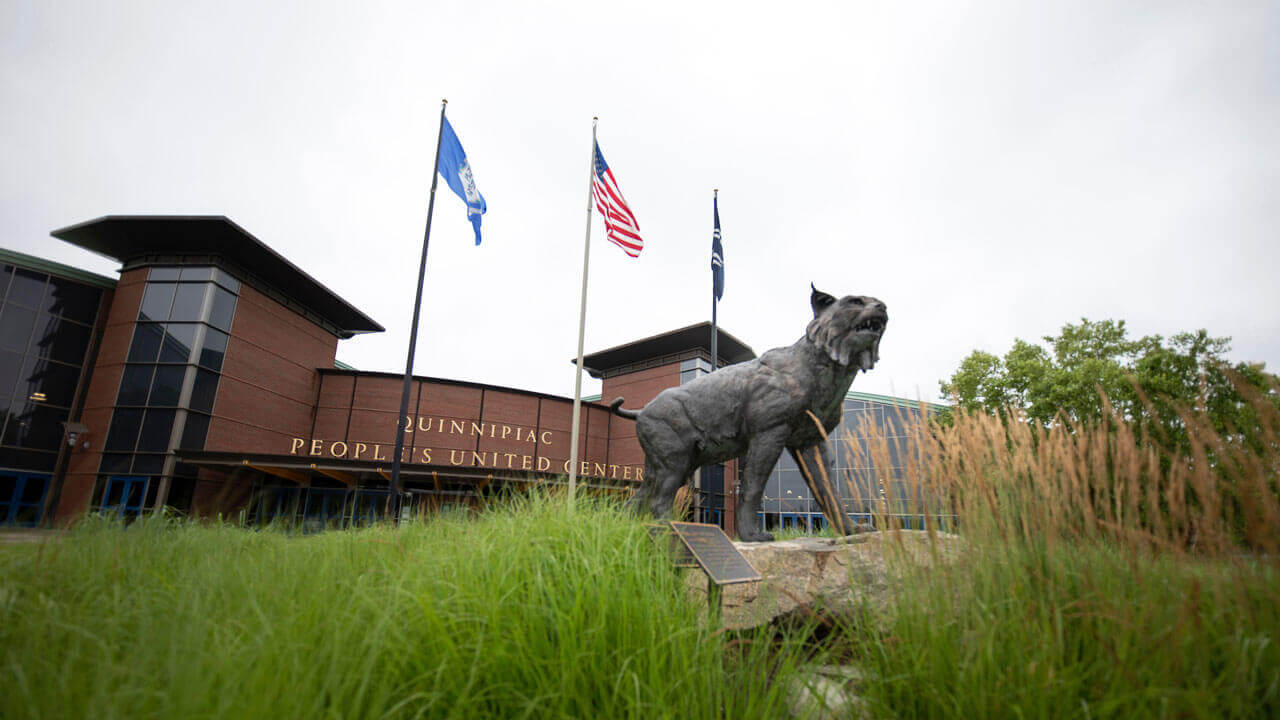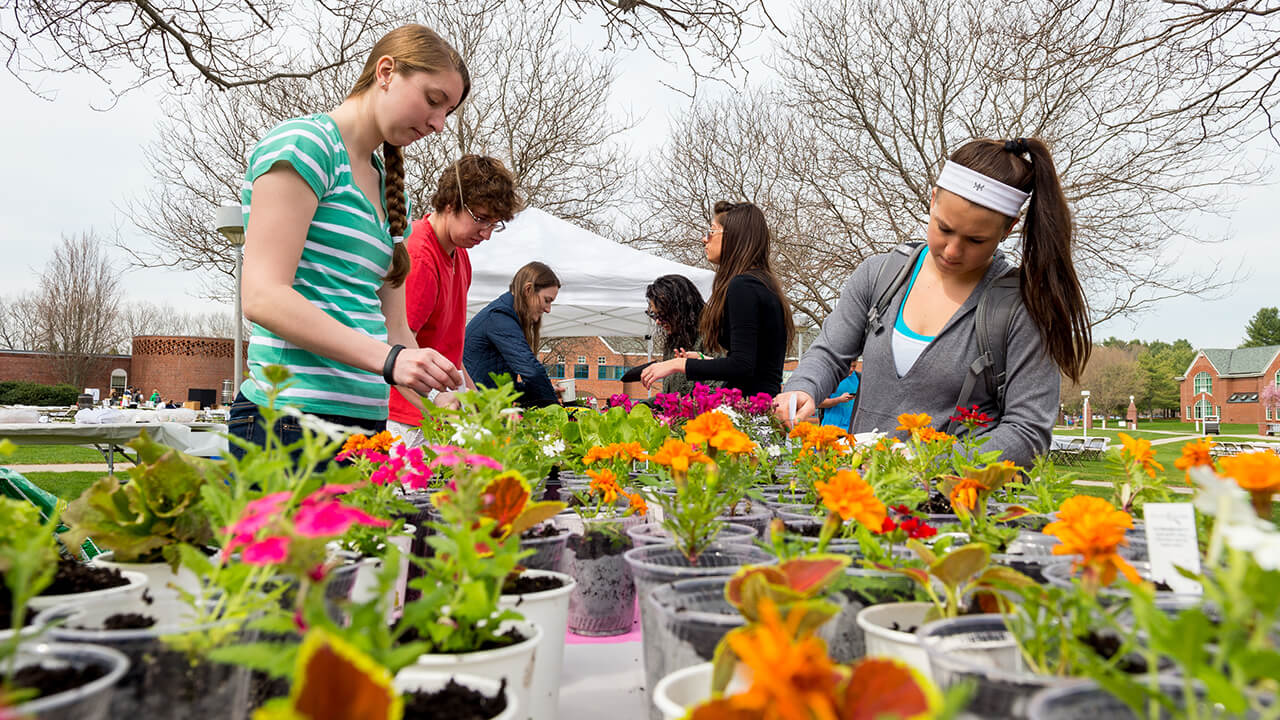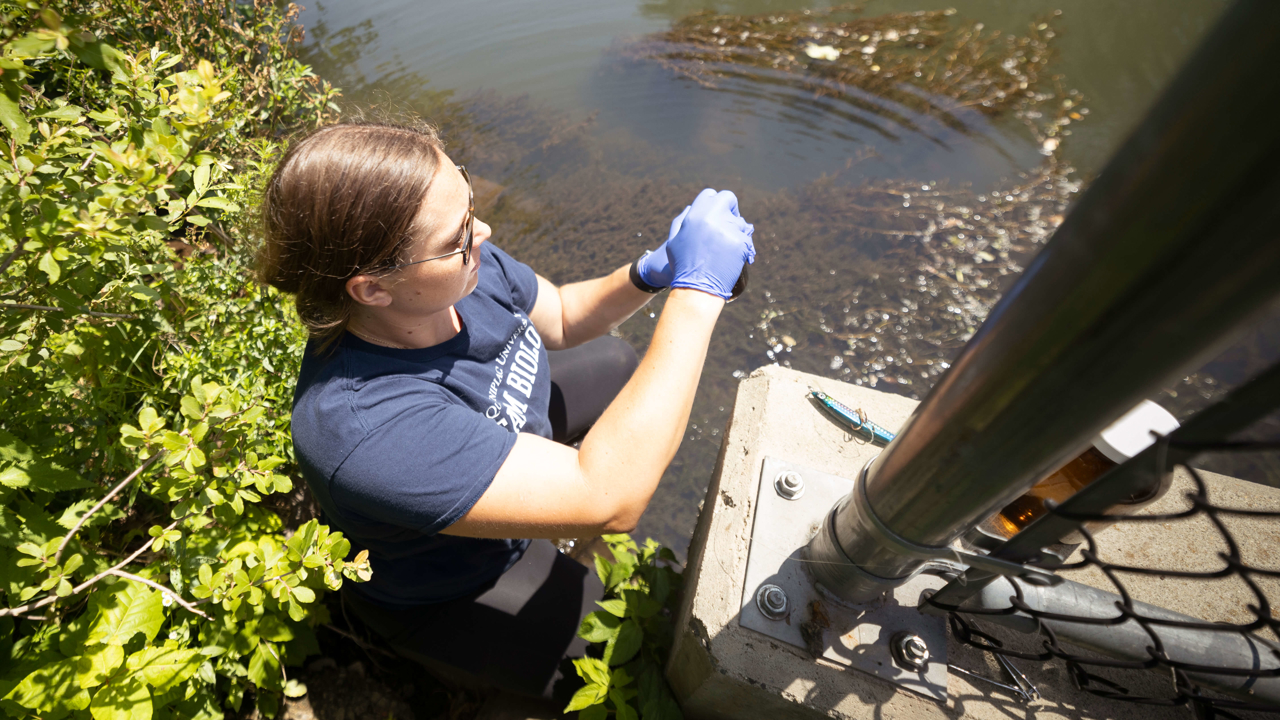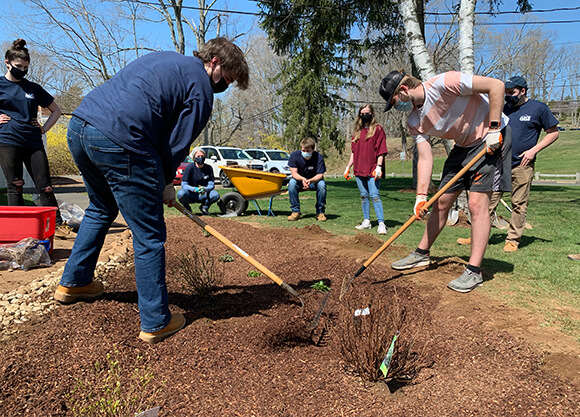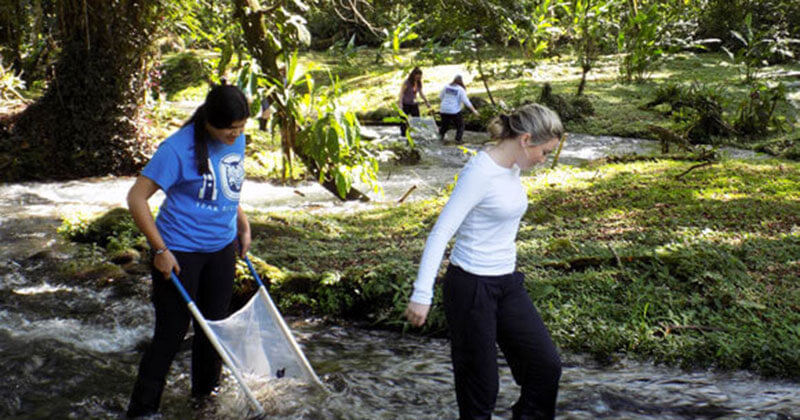

Sustainability and Stewardship
Tree Campus Designation
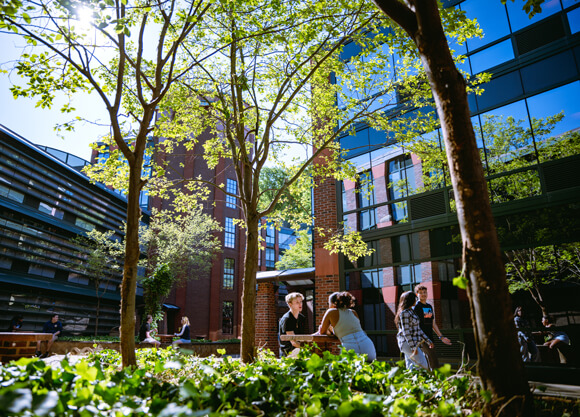
Sustainability and Stewardship
Tree Campus Designation
Quinnipiac is one of four in Connecticut recognized by the Arbor Day Foundation as a Tree Campus, alongside approximately 400 other universities across the country. An Arbor Day Foundation program, this distinction recognizes colleges and universities for their leaders who are promoting healthy trees and engaging the community in stewardship.
About our Designation
To obtain the Tree Campus designation, Quinnipiac meets the five core standards for sustainable campus forestry required by Tree Campus Higher Education.
These standards include:
- The establishment of a tree advisory committee
- Evidence of a campus tree-care plan
- Dedicated annual expenditures for a campus tree program
- An annual Arbor Day observance
- Sponsorship of student service learning projects.
Quinnipiac is proud of this achievement and pledges a sustained commitment to environmental stewardship.
Goals for Quinnipiac as a Tree Campus
Some of the goals of the Tree Campus Higher Education initiative are:
- Reducing the amount of energy our campus and community generates.
- Planting more trees to help absorb carbon dioxide in the atmosphere, which will help mitigate the effects of climate change.
- Improving mental health benefits for students and employees, and encouraging physical activity.
- Assist in providing tree-related service-learning projects for students to help educate the next generation about the importance of caring for the environment.
Take the Tree Campus Walk
At the beginning of the walk, you will pass the new Recreation and Wellness Center. Constructed with an eye toward global stewardship and preserving the planet, RecWell is recognized by U.S. Green Building Council as a LEED (Leadership in Energy and Environmental Design) Gold Building. One of the highlights is the native plant rain garden on the south side of the building. As part of its commitment to sustainability, Quinnipiac is establishing a goal of 75% native tree species of new plantings on the Mount Carmel Campus by 2035. This will be accomplished by prioritizing native species when replacing a tree and implementing new landscaping.
At the end of the walk, stop by the native pollinator garden at the Albert Schweitzer Institute (ASI). The pollinator garden contains eight, themed beds hosting 200 varieties of native plants or native cultivars. In addition to increasing the area’s biodiversity with native pollinators, the garden also serves as an outdoor space for scholarship and meditation.
The Tree Campus Walk features 16 points of interest along the way, including:
- Norway Maple
- Red Maple
- Eastern White Pine
- Arborvitae/White Cedar
- White Birch
- Pin Oak
- Cherry Plum
- Norway Spruce
- Eastern Hemlock
- Eastern Cottonwood
- Shagbark Hickory
- Bradford Pear
- Black Oak
- Red Cedar
- Sugar Maple
- Pollinator garden at the Albert Schweitzer Institute (ASI)
Sustainability-Focused Majors
Explore more
Our Approach to Sustainability
We envision a Quinnipiac that is a model for sustainability in Southern New England, building its practices and leveraging its campuses to promote a healthy regional ecosystem, and to engage in practices that equip current and future students, faculty and staff to embody sustainable practices in their personal and professional lives, equipping them to thrive in a world increasingly influenced and affected by environmental disruption.
Students for Environmental Action
Students for Environmental Action (SEA) is a club committed to promoting environmental stewardship at Quinnipiac and in the broader community. Past events include World Environment Health Day and fundraising for the Coral Sea Alliance. If you are interested in participating in sustainability initiatives around campus with a group of like-minded environmentalists, consider joining SEA.
Albert Schweitzer Institute
The Albert Schweitzer Institute conducts programs that link education, ethics and voluntarism for the sake of creating a more peaceful and sustainable world. A dynamic presence at Quinnipiac, the institute has drawn notable humanitarians both to campus and to its board, and gives students of all majors opportunities to make a positive impact on local and global communities.
Questions or comments
We'd love to hear your feedback or suggestions. Contact us at qusustainability@qu.edu

